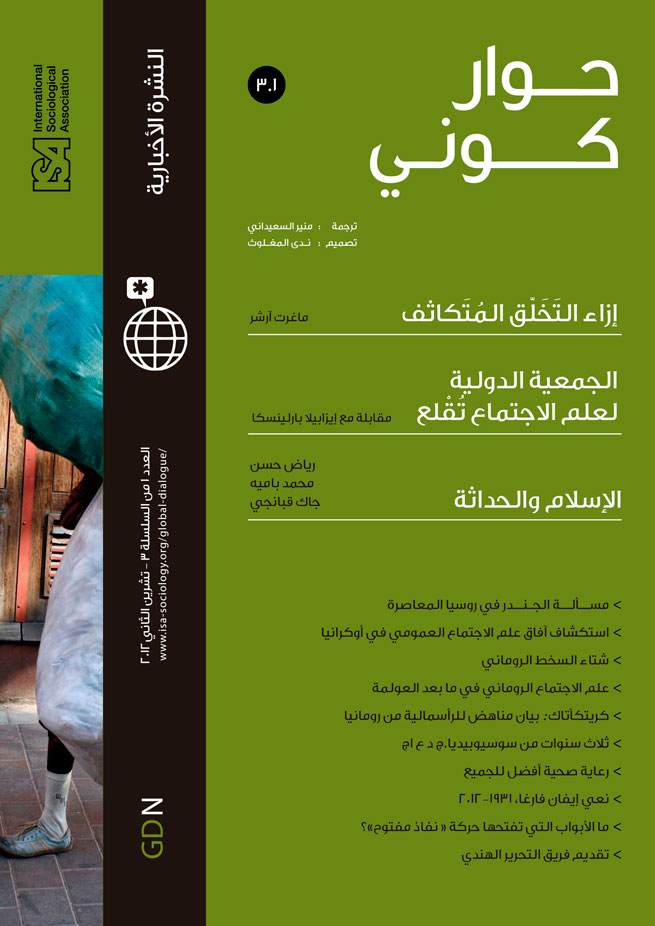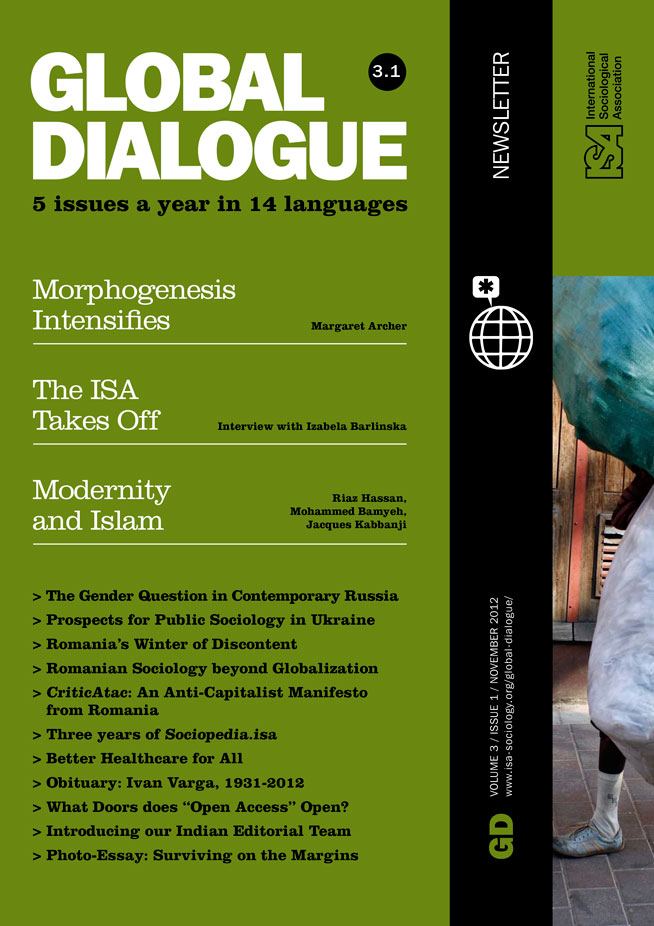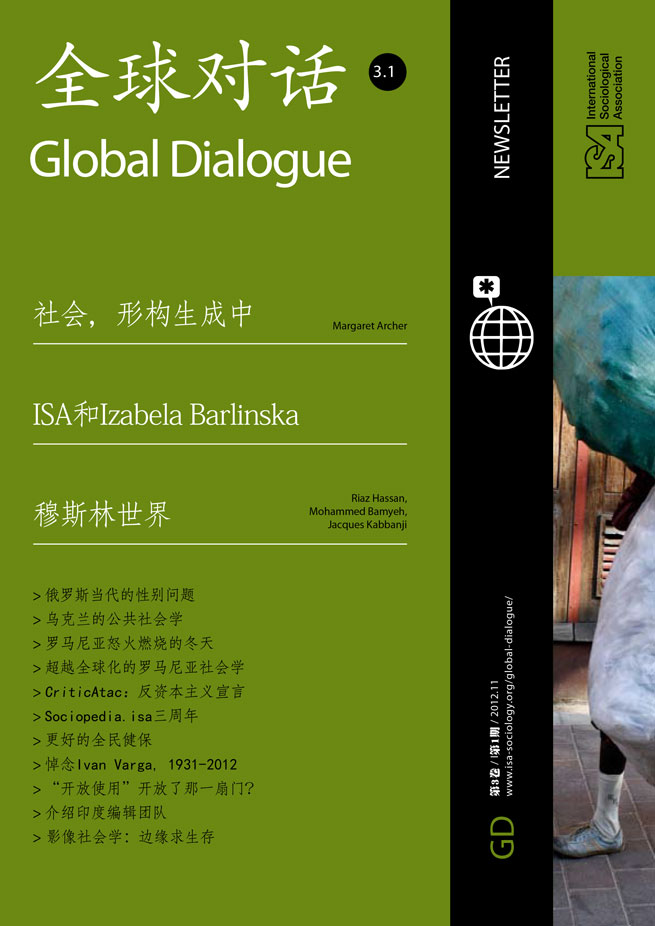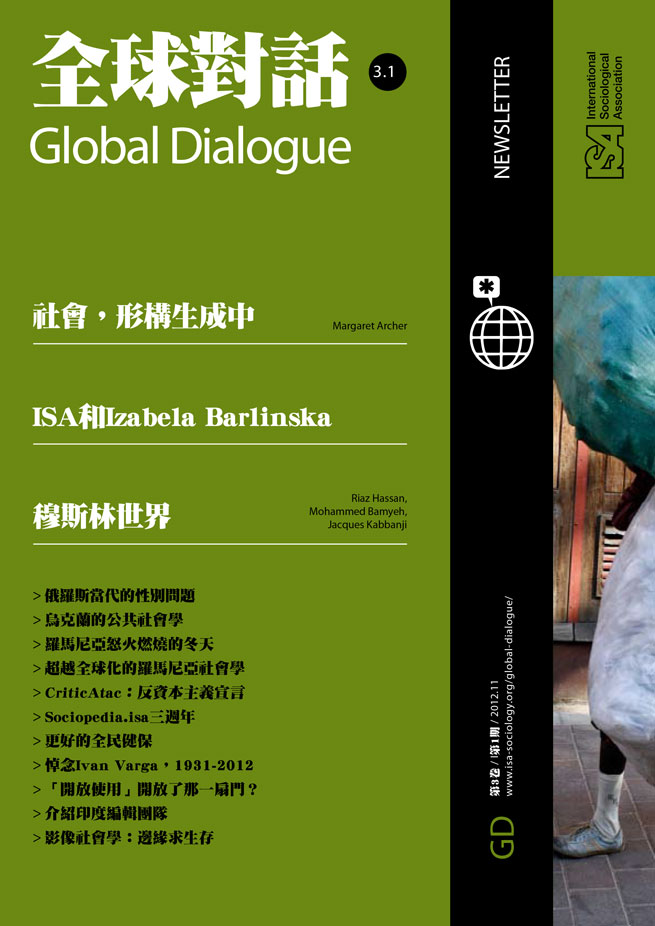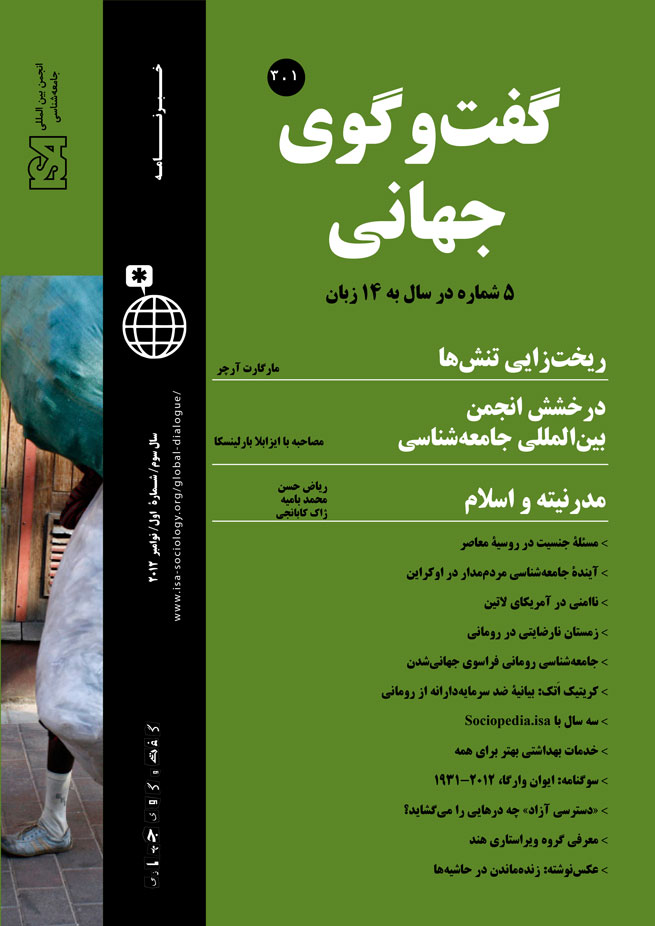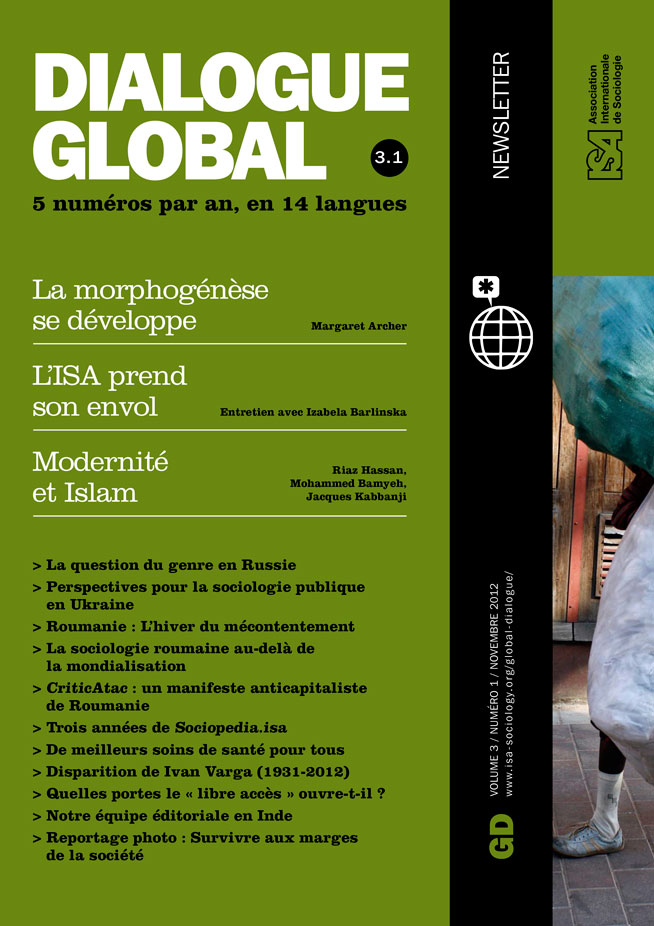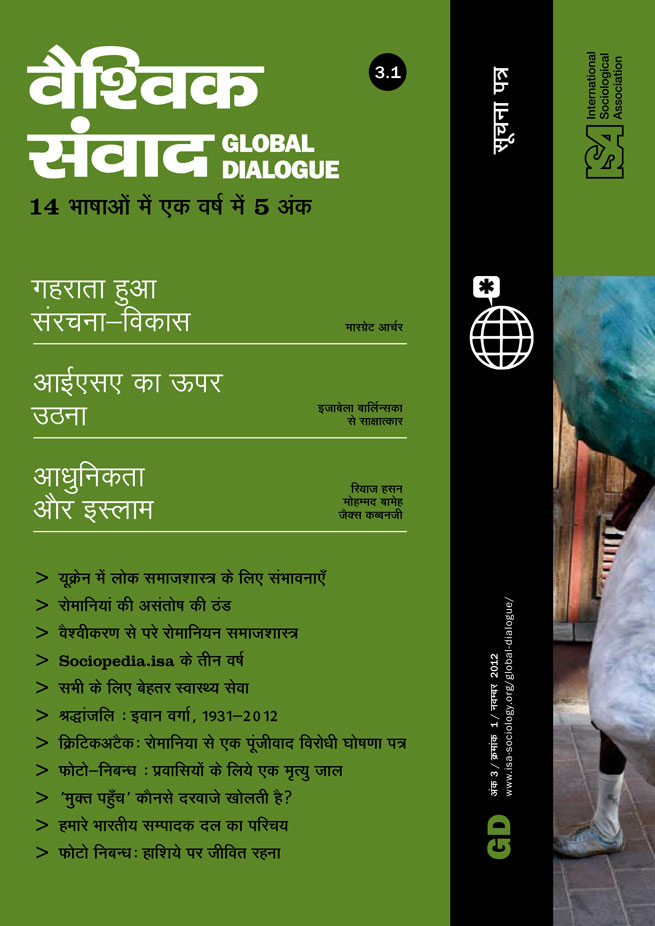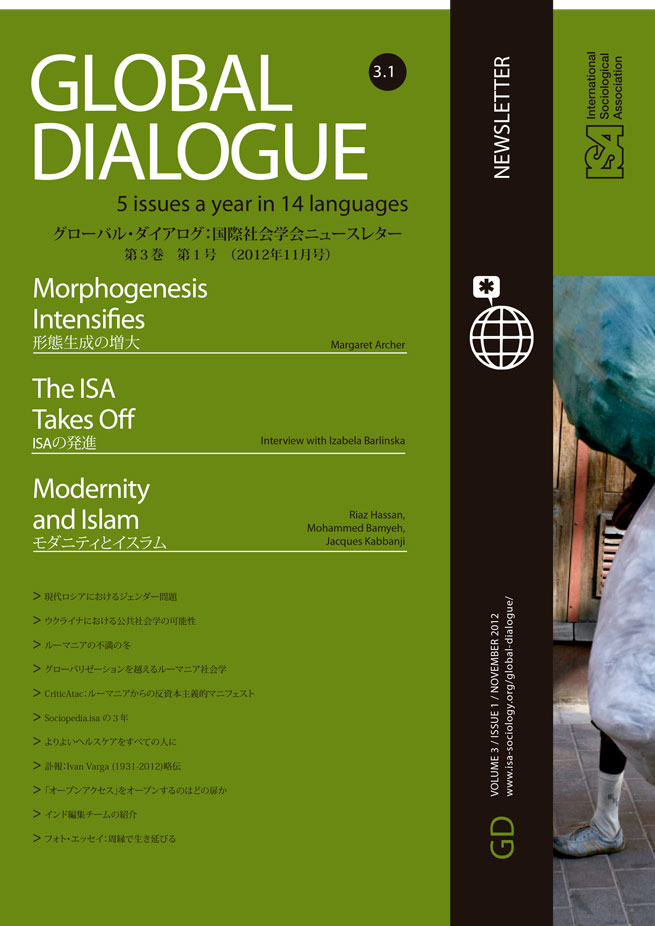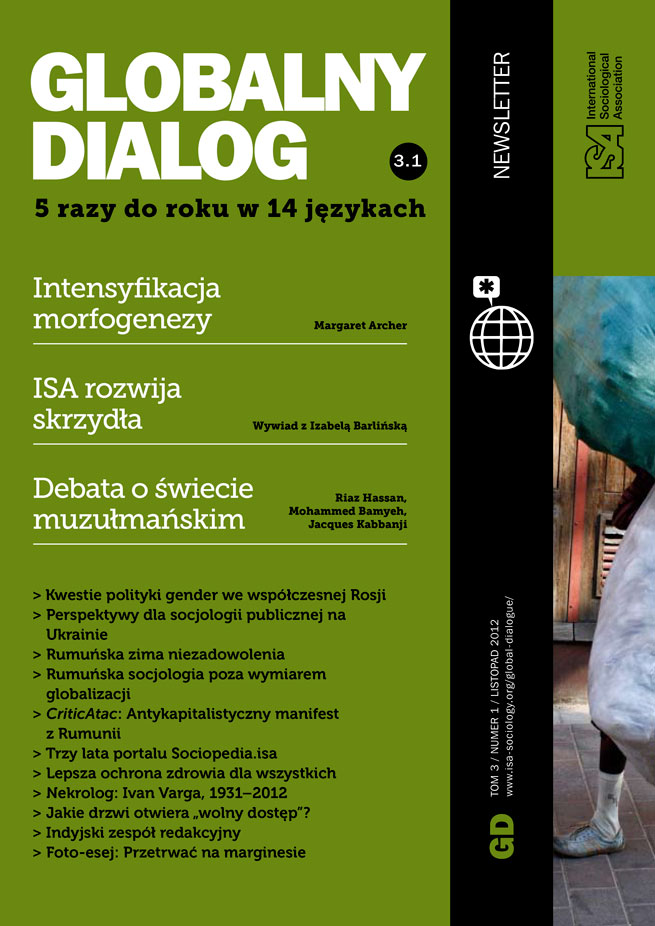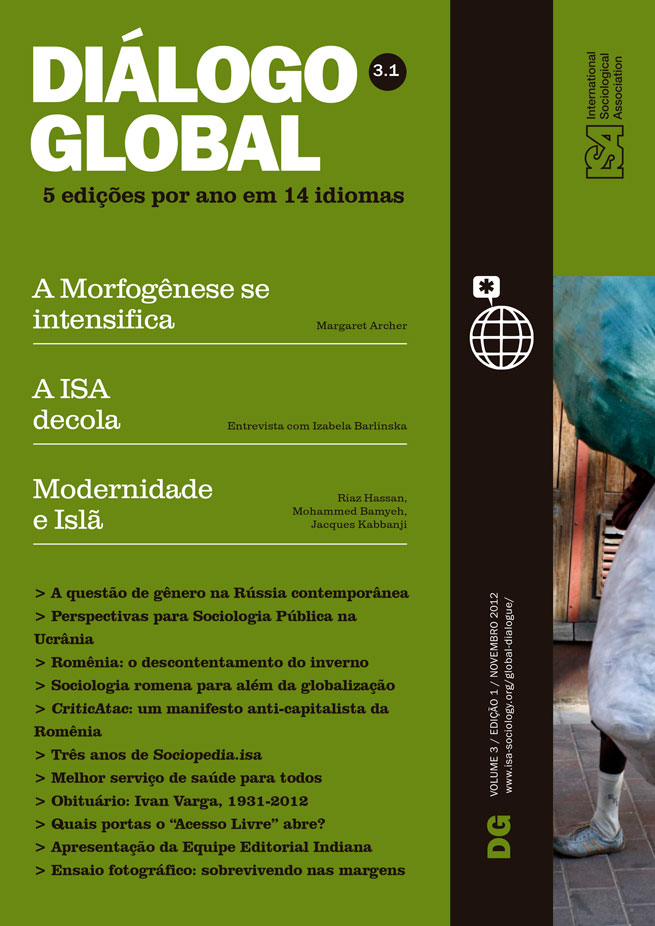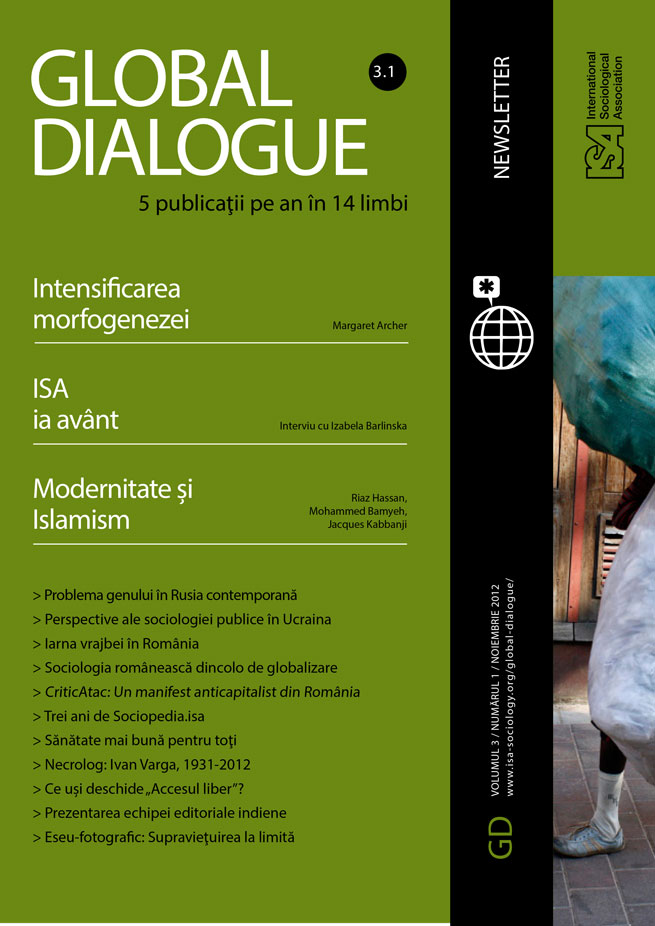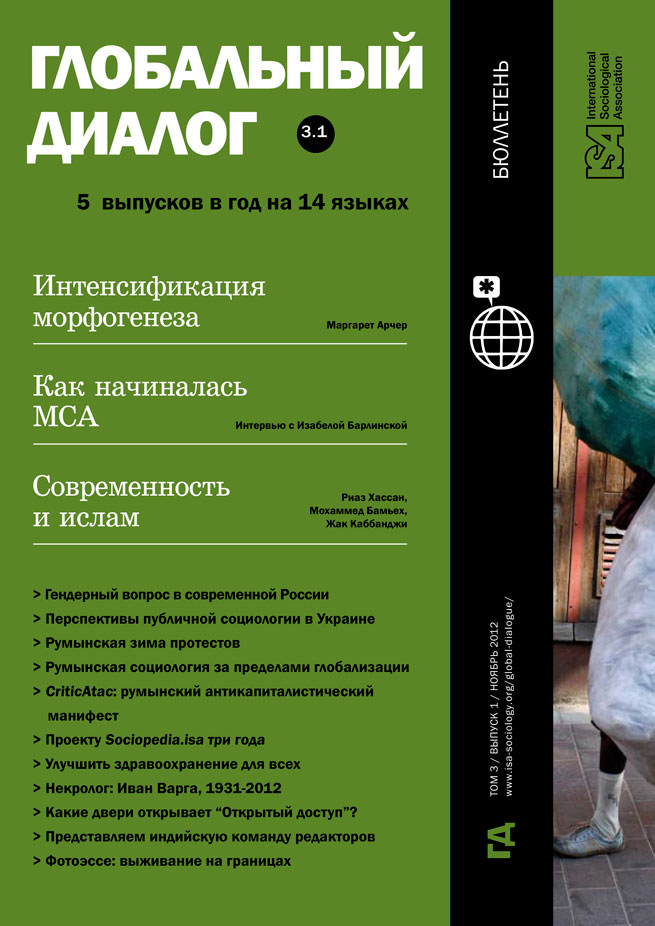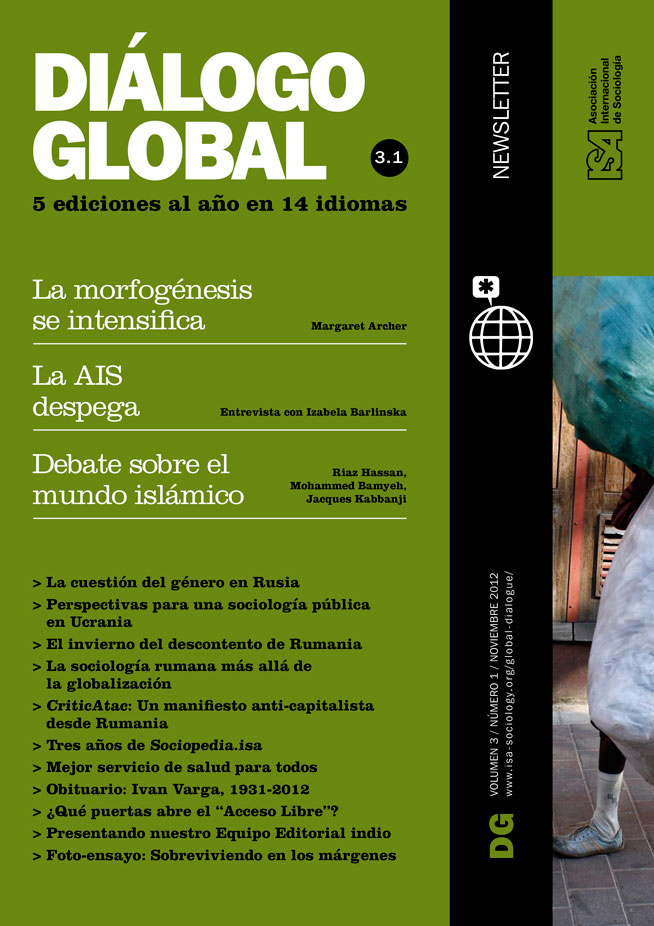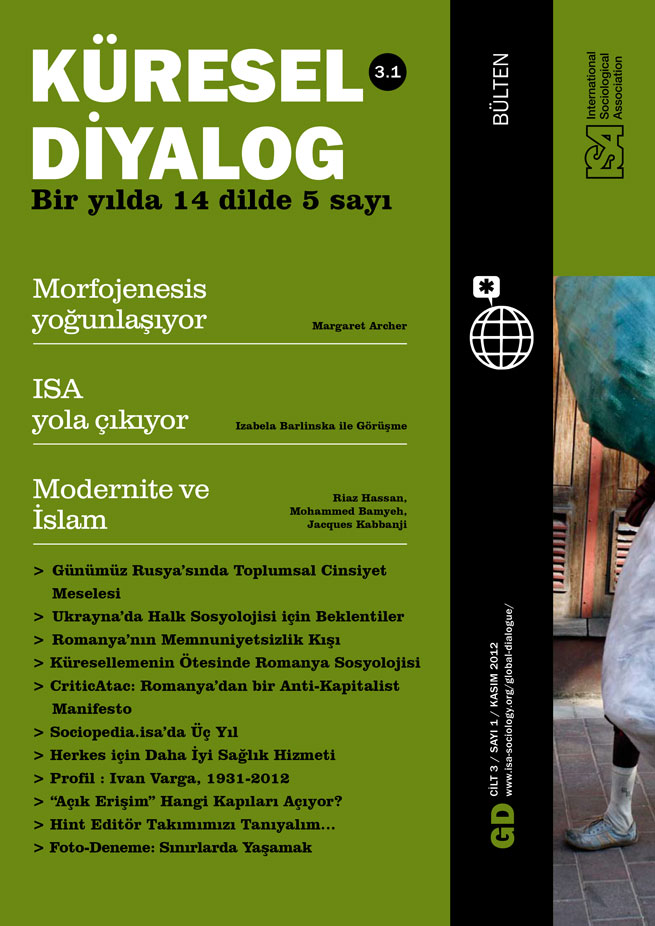Read more about News from the ISA
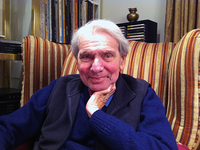
Obituary: Ivan Varga, 1931-2012
by Ivan Varga
Three years of Sociopedia.isa
by Bert Klandermans
October 27, 2012
Better healthcare for all citizens is a key to fighting social inequality and poverty and high on the agenda of policymakers across the globe. Besides their many differences, emergent healthcare systems in the Global South and the East as well as in established welfare states of the West all seek to improve the organization, delivery and accessibility of healthcare. This includes new modes of governing health professionals. For these processes social responsibility and public sector services have proved to be crucial for the health of the population, although markets and management enjoy high currency in the current climate of financial restrictions. There is an urgent need for more creative policy solutions that are sensitive to the realities of power relations.
The Second Forum of ISA in Buenos Aires was an optimum chance to flag the emergent field of health policy and services from a sociological perspective and to highlight the benefits of an international approach. (See also special issue of Current Sociology, 60(4), July 2012.) This new field is transdisciplinary in nature, and consequently, we launched calls for joint sessions. The response was overwhelming, and thanks to our host RCs, RC15 (Health) and RC19 (Social Policy) organized joint sessions on “better healthcare for all,” while RC15 and RC52 (Professional Groups) held a joint session specifically on professional governance. All the sessions were packed with papers and were the scene of very lively debates.
The sessions provided a platform for discussing what matters in health policies and services, and what to learn from international experiences. Most fascinating, and indeed unique, the joint sessions brought together researchers from all continents, and language barriers were creatively overcome by bilingual presentations and discussions. Participants came from North and South America, from various European countries and Australia as well as from Nigeria, South Africa and Japan.
Major topics included the challenges of comparative research in a highly diverse and dynamic healthcare sector. Here, there were suggestions for more complex typologies, the need for connecting macro and micro levels of research, and the use of a range of indicators. Another key issue was the question of inequalities. There was no shortage of examples of a persistent and even widening gap in the accessibility of healthcare; this included gender equality, women’s healthcare and reproductive rights, but also issues of culture, language, place and ethnicity that may create inequalities. Common themes across countries were the relevance of rights and the importance of universal access to healthcare; the role of social movements and actors; and the changing balance between public and private healthcare services. Another strand of the discussions addressed the complexity of professional governance and the need for more efficient management of health human resources.
No doubt, the joint sessions greatly add value to the existing RCs and we look forward to future collaborations, having already built bridges for Yokohama.
Ellen Kuhlmann, Goethe University, Frankfurt, Germany, President-elect of RC52 (Sociology of Professions)
Claus Wendt, University of Siegen, Germany, Board Member of RC19 (Poverty, Social Welfare and Social Policy)
Ivy Bourgeault, University of Ottawa, Canada, Vice-President of RC15 (Sociology of Health)
This issue is not available yet in this language.
Request to be notified when the issue is available in your language.
If you prefer, you can access previous issues available in your language:
